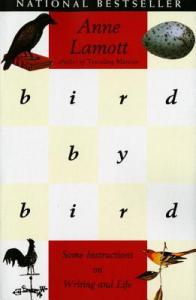 I don’t know why, but the haiku I quoted in my title came to mind tonight. Of course it is obvious why: Issa might have written this poem yesterday, as everything is blooming while we are confined to our homes and people are dying and essential workers are at risk. The hell of it, to me, is not just the deaths of people around the world, but the selfish terrorists in my own country who are insisting that things re-open so they can go to bars, get haircuts, and see movies.
I don’t know why, but the haiku I quoted in my title came to mind tonight. Of course it is obvious why: Issa might have written this poem yesterday, as everything is blooming while we are confined to our homes and people are dying and essential workers are at risk. The hell of it, to me, is not just the deaths of people around the world, but the selfish terrorists in my own country who are insisting that things re-open so they can go to bars, get haircuts, and see movies.
In this world, we walk on the roof of hell, gazing at flowers. But the flowers are no less real than the hell. In Buddhism, there are numerous hells full of suffering, punishment for evil deeds, but they are no more permanent than human life. There are also beautiful heavens that reward the good, but they, too, are impermanent. Karma is less a reward than a kind of fuel, and whether it’s good or bad, punishment or reward, it burns out eventually. Nirvana is the only way out.
It’s an ideal rather than a reality, but I lean toward the Vajrayana, Tantric idea that nirvana and samsara are the same thing. Samsara, the merry-go-round of karma created and then burned off, of rebirth in conditioned reality, is no different than nirvana, the fullness of freedom and enlightenment–if you are enlightened. Robert Thurman says, in his excellent book The Jewel Tree of Tibet (I am paraphrasing), that to a bodhisattva, the worst sufferings of this world seem no more real than a child’s insistence that there’s a monster under the bed; however, the bodhisattva still helps the suffering, even as a good parent still comforts the child and offers a defense against the imaginary monster.
The bodhisattva already knows that the ultimate reality is joy, is bliss. Julian of Norwich also says, more concisely, “Bliss is lasting, pain is passing.” I believe that, in the sense that I trust the saints, adepts, and bodhisattvas who tell me so, without yet fully experiencing it for myself. So what about walking on the roof of hell? Hell is real, just as the flowers are real, but hell is not all there is to the underworld, just as spring flowers are not all there is to this world. While we are shivering in ice storms and it seems winter will never end, the faery realm below the hills is still feasting in perpetual summer.
If I understand it correctly, the most basic message of Buddhism is that we suffer because we want things our way, and therefore our best practice is to stop wanting things our way and accept whatever happens. That is an extreme simplification of the first stages of Buddhist teaching, I know. But European religious and magical traditions tend to affirm that desire is legitimate and there is some chance of getting what we want, so it’s acceptable to pursue what we want within certain ethical guidelines (such as not murdering people, violating laws of kinship or hospitality or sexual fidelity, or hoarding wealth and resources to the detriment of others).
There are hints in European folklore, especially in Celtic countries, that the Otherworld is a mirror of our own, rather like the north and south hemispheres of our planet. If it is summer here, it is winter there; if one dies in this world, one is born into the other. If we are walking on the roof of hell here, while the flowers bloom, perhaps in the Otherworld they are joyful and at peace even if the trees are bare. If we cannot venture very far afield in this world because of the coronavirus, we can still cross over into the Other and bring back something of hope and joy.


 I don’t know why, but the haiku I quoted in my title came to mind tonight. Of course it is obvious why: Issa might have written this poem yesterday, as everything is blooming while we are confined to our homes and people are dying and essential workers are at risk. The hell of it, to me, is not just the deaths of people around the world, but the selfish terrorists in my own country who are insisting that things re-open so they can go to bars, get haircuts, and see movies.
I don’t know why, but the haiku I quoted in my title came to mind tonight. Of course it is obvious why: Issa might have written this poem yesterday, as everything is blooming while we are confined to our homes and people are dying and essential workers are at risk. The hell of it, to me, is not just the deaths of people around the world, but the selfish terrorists in my own country who are insisting that things re-open so they can go to bars, get haircuts, and see movies.